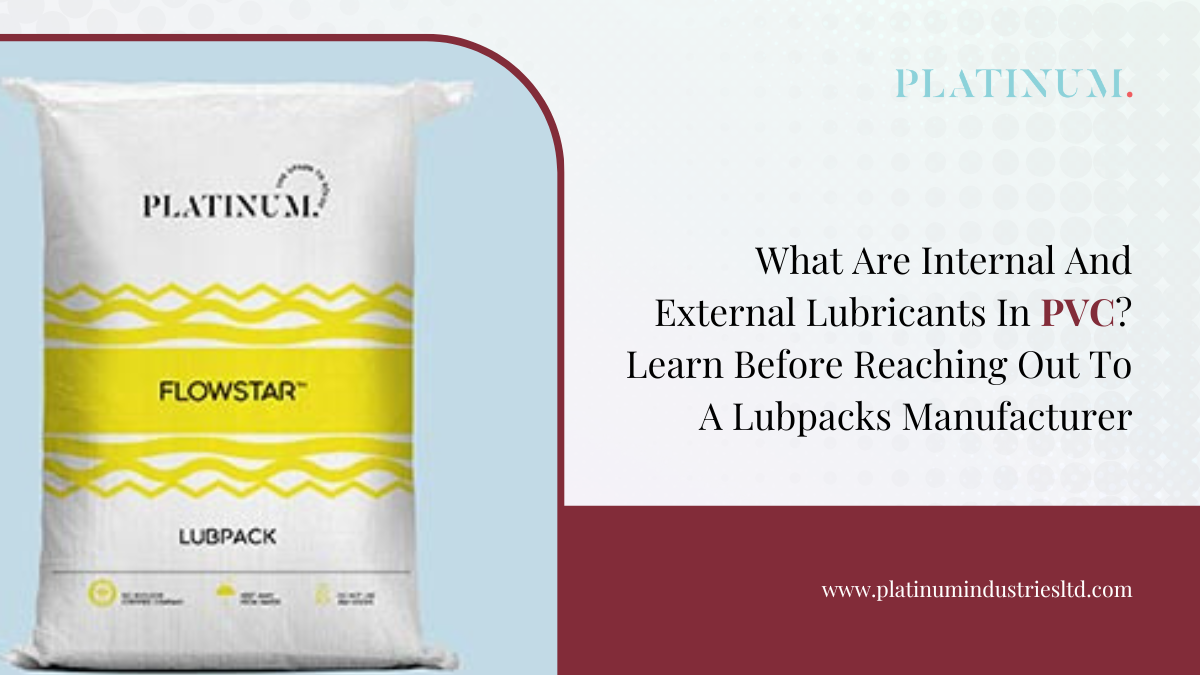For all of you who are in the business of working with Polyvinyl Chloride (PVC), you’ve most certainly come across the terms “internal lubricants” and “external lubricants.” These additives play a crucial role in PVC processing, and knowing the difference between them is essential before reaching out to a lubpack manufacturer or supplier. To know more, read on:
Internal Lubricants
Internal lubricants are compounds that are intimately mixed with PVC resin during the compounding or blending process. They serve multiple purposes in PVC processing:
1. Reducing Friction:
Internal lubricants reduce the friction between PVC particles and processing equipment, such as extruders and injection moulding machines. This lubrication is essential to prevent PVC from sticking to metal surfaces and causing processing difficulties.
2. Enhancing Flowability:
These lubricants improve the flowability of PVC melt, making it easier to process. This is particularly crucial in applications like extrusion, where a smooth and uniform flow of PVC is essential for quality end products.
3. Minimizing Shear Heat:
The friction generated during PVC processing can lead to excessive shear heat, which may degrade the polymer. Internal lubricants help reduce shear heat, preventing polymer breakdown and maintaining product integrity.
4. Controlling Fusion Time:
In applications involving multiple layers or co-extrusion, internal lubricants can be tailored to control fusion times. This ensures proper bonding between PVC layers or with other materials.
External Lubricants
External lubricants procured from the lubricants manufacturers in India have different functions compared to internal lubricants:
1. Improving Surface Finish:
External lubricants enhance the surface finish of PVC products, giving them a smooth and glossy appearance. This is particularly important in applications where aesthetics matter, such as PVC pipes or profiles.
3. Enhancing Mold Release:
In injection moulding, external lubricants act as mould release agents, preventing PVC from sticking to the mould cavity. This facilitates easy demolding and reduces production cycle times.
4. Controlling Coating Thickness:
External lubricants can be customized to control the thickness of coatings in applications like PVC dip moulding. This ensures consistent and precise coating thickness.
In summary, both internal and external lubricants are essential components in PVC processing, each serving specific functions like reducing friction, enhancing surface finish and preventing sticking.
Before contacting a lubricant manufacturer or supplier, assess your specific PVC stabilizer processing needs and discuss your requirements with experts in the field, like Platinum Industries, a leading PVC stabilizer manufacturer in India. Our lubricant formulations and dosages are designed to achieve the desired results in your PVC applications. Contact us to know more.

